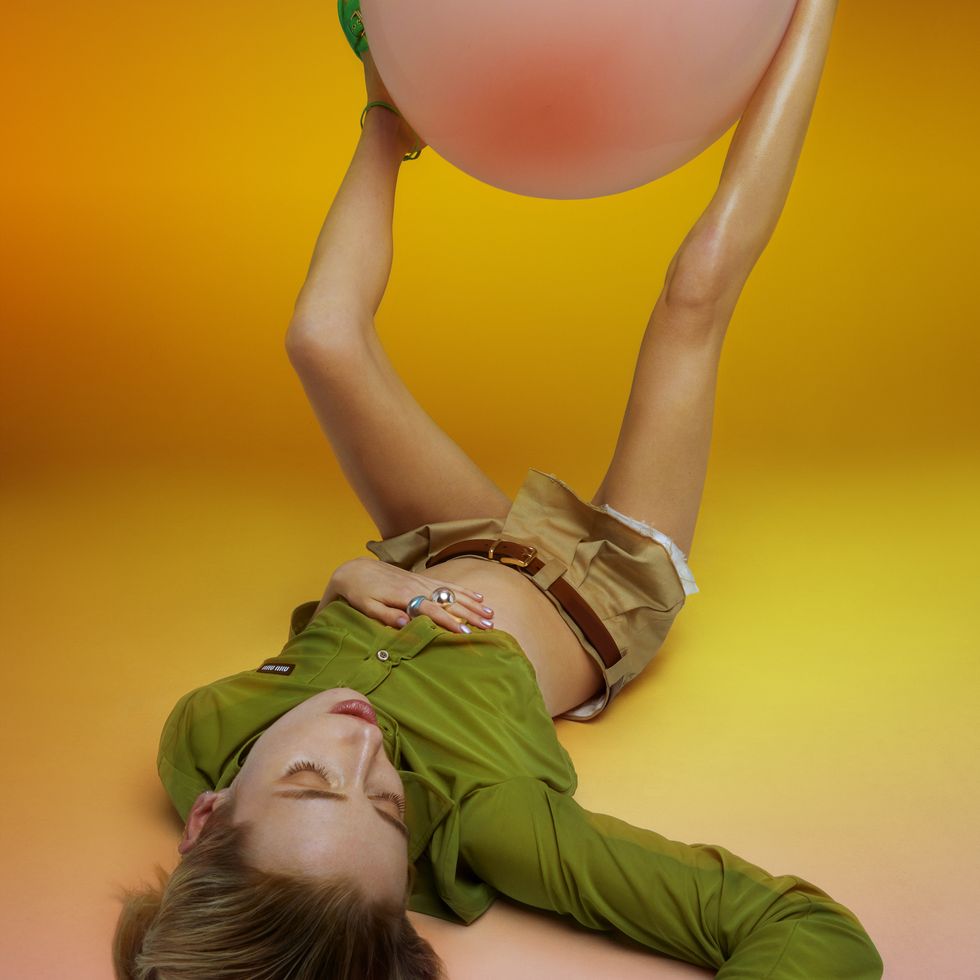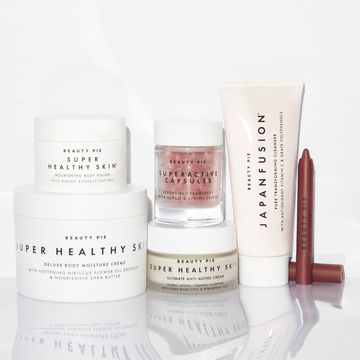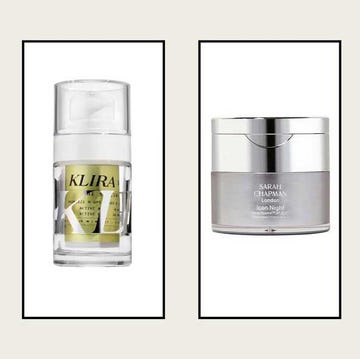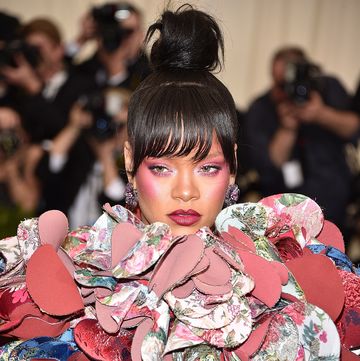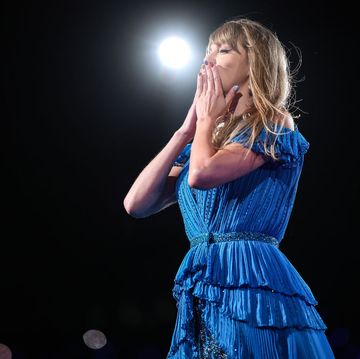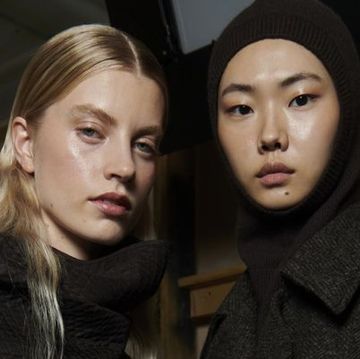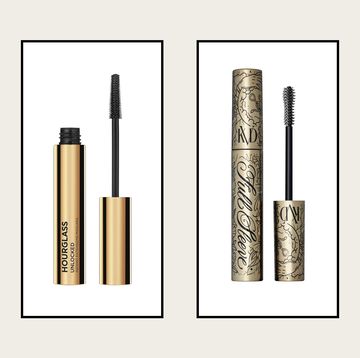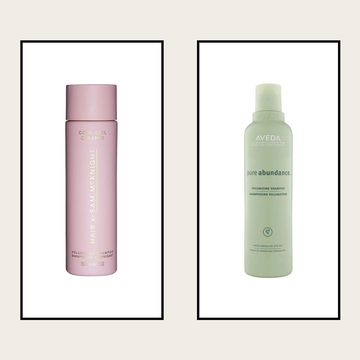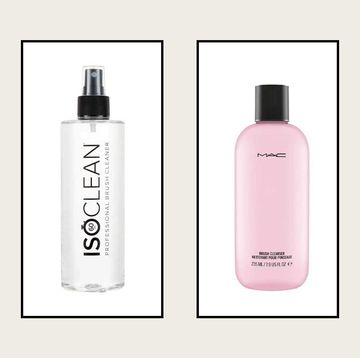It's easy to forget how relatively new the concept of ‘wellness’ is; it’s become so ingrained in our daily lives that it feels like it’s always been a permanent fixture. A glance at my inbox showed that 121 emails arrived last week with the word ‘wellness’ in them (that’s 20% of all my mail), including one promoting potato lattes, another prompting me to bathe in seaweed, and another announcing the launch of a £160 electronic device that teaches you how to breathe. There’s a lot of wellness on offer, but how much of it do we actually need? And could our obsession with achieving the kind of optimum health and happiness that the wellness industry offers be bordering on unhealthy?
Despite my best efforts and innate cynicism, many of these trends have somehow seeped into my life. As I write this, I’m two weeks into a month off alcohol, which probably sits under the wellness umbrella. I’m not eating bread, as I’ve been advised by a nutritionist that I 'might' have an intolerance to wheat. When I go out later, I’ll be carrying – as I do at all times – a pouch containing three crystals. I don’t know why, I don’t know what they do, but it’s become a superstition. And for the cherry on top, on the flight home from a recent holiday, I stuck holistic herbal ‘sleep patches', formulated by a beauty editor-beloved acupuncturist, on my temples to supposedly help send me into a slumber.
Yet despite all that, I find myself rolling my eyes on a daily basis at the onslaught of the (usually) unsubstantiated bullshit that this industry promotes. But while it’s (mostly) not for me, if it makes someone feel good, it’s harmless, right? Perhaps not.
‘My biggest complaint is that it’s all on you to fix things,’ says Rina Raphael, a journalist-turned-wellness expert-turned-wellness detective who dives deeply and thoroughly into the pros and cons of the industry in her new book, The Gospel of Wellness. "You should be taking a bath." "Have you tried yoga?" Generally, the things that are being suggested cost either money or time.’ (One report showed that the average Briton spends over £200 monthly on health and fitness routines.) What should be fixed, she says, are the systems, especially for women, that mean we’re not feeling ‘well’ in the first place: healthcare, community, and social norms.
The global wellness industry is worth around £3.6 trillion, and it’s estimated that figure will be pushing £5.75 trillion by 2025. It’s likely all over your social-media feeds, too: #wellness has been used on over 61 million Instagram posts and has 8.5 billion views on TikTok. Perhaps one reason it’s snowballed is precisely because it’s so loose in its parameters. ‘Wellness is this nebulous, undefined area,’ says Raphael. ‘There’s no agreed-upon definition of what “well” actually is, partly because it’s so personal. Almost anything can be seen as self-care. Buying property could be seen as self-care! So every brand wants to call itself a wellness or self-care brand. It’s the new industry du jour, replacing fashion and beauty. And it’s being treated like fashion now; every few months, there is a new trend.’
Another reason for this is, of course, social media. Wellness ‘experts’ are available at our fingertips, drowning us in tricks, tips and mantras that we otherwise wouldn’t be exposed to. ‘Twenty years ago, if there was a health guru who wrote a book, you might read it for 10 minutes each day before bed, let’s say,’ says Raphael. ‘But now, influencers are posting for you several times a day. And how often are you seeing an actual doctor? Once or twice a year?’ It’s an uneven playing field, she says, where science is outgunned by social media.
The movement has also taken advantage of our own worries around beauty standards and unrealistic expectations for our bodies and looks. The marketing of products explicitly designed just to make you prettier or thinner seems old-fashioned at best, harmful at worst. ‘Wellness’, however, is gentler and more holistic, disguising words like ‘diet’ and ‘weight loss’ with self-care-aligned ideas like ‘cleansing’ and ‘fasting’. Even Weight Watchers, the 60-year-old diet company that boomed in the 1980s, attempted a rebrand in 2018, renaming itself 'W W International' – ‘wellness that works’ – apparently shifting its focus to healthier habits and fitness instead of shakes and scales. The move was an immediate flop, but a clear example of the attempt to hop on to and monetise wellness trends.
Dr Pooja Lakshmin, a practising psychiatrist and founder and CEO of Gemma, a women’s mental-health community centring on the impact of equality, looks at the darker side of the wellness industry in her book Real Self-Care (the subtitle of which summarises her feelings on the industry: ‘A transformative programme for redefining wellness: crystals, cleanses and bubble baths not included’). ‘As you can tell from that, I have some strong feelings on the so-called solutions that are sold to women as a panacea for our problems,’ she tells me. ‘The premise is that, if you partake of one of these many commodified wellness activities, you will feel better. But you can’t meditate your way out of a 40-hour work week without childcare. Our social systems have failed us, and the onus is being put on us to fix ourselves.’
These failures – social pressures, the rising cost of living, the lack of mental and physical support – are, both Dr Lakshmin and Raphael say, a huge driver in the rise of wellness. ‘Modern life is becoming harder and harder. We are working longer hours, money is tighter, our medical systems aren’t reliable,’ says Raphael, ‘and this industry dangles solutions in front of us. “We’ll take care of your stress, loneliness, sleep...” People feel helpless and they’re searching for meaning and magic pills to fix things.’
‘The tyranny of self-care’ is how Dr Lakshmin puts it. ‘Women are being sold breezy fixes in pastel-coloured packages, then made to feel at fault when they don’t work.’ And, of course, those packages – the gut supplements and the gong-bath workshops and the designer leggings everyone wears while doing them – don’t come cheap. It’s a system that is, ultimately, undemocratic, but makes you believe you’re depriving yourself of something important, even vital, if you’re not partaking.
‘So much of this industry is based on belief and placebo,’ adds Raphael. Which isn’t all bad, of course. If you believe something is making you feel better mentally or physically, that’s obviously a good thing. And so much of it is highly subjective. A bubble bath can help one person escape a deep mental funk; to another, it is just a wash. What we should be wary of is putting too much faith in wellness promises. ‘Brands will use words like “boost”, “promotes” and “aids”,’ says Raphael, ‘but not “fixes” and “cures”. Because they can’t claim to do that.’ No amount of deep breathing or potato lattes will help to cure the mind of entrenched negative thought patterns or deep-rooted trauma.
Picking and choosing what helps you, placebo or not – without putting too much faith in that practice or pressure on yourself – is a good place to start. Be open-minded, without blind faith.'Distinguish legitimate benefits from marketing copy,’ as Raphael puts it. I like to dip my toe in and test the waters, and I’ll continue to carry my silly stones around with me, but I won’t blame them if I have a bad day. I slept like a baby on that red-eye flight home but, alongside the holistic patches attached to my face, I washed down two drowsiness-inducing painkillers with a miniature bottle of whisky. That’s my version of wellness, and you can have that tip for free.
